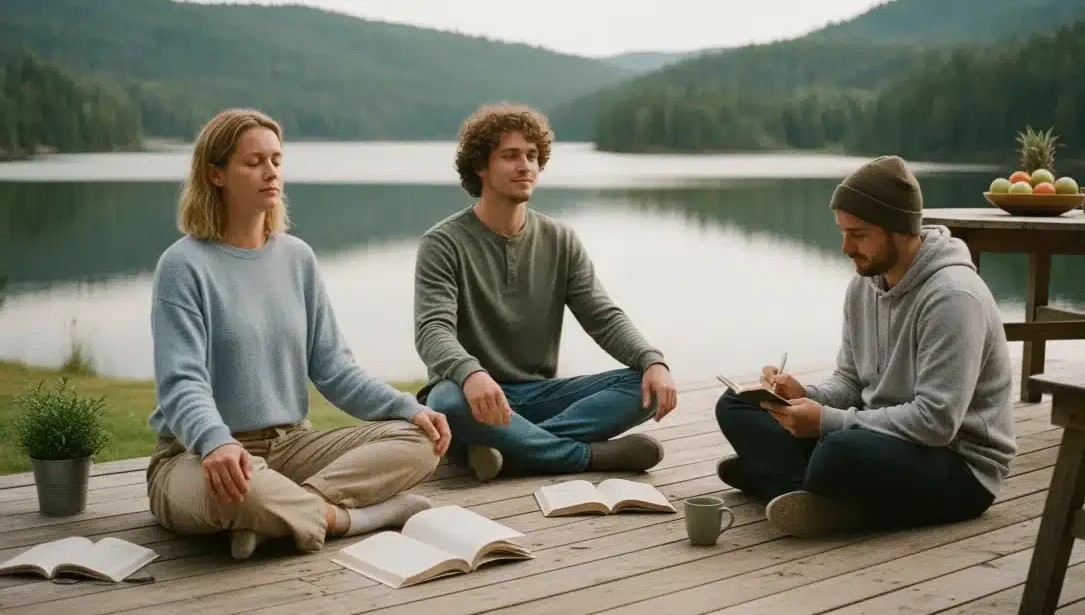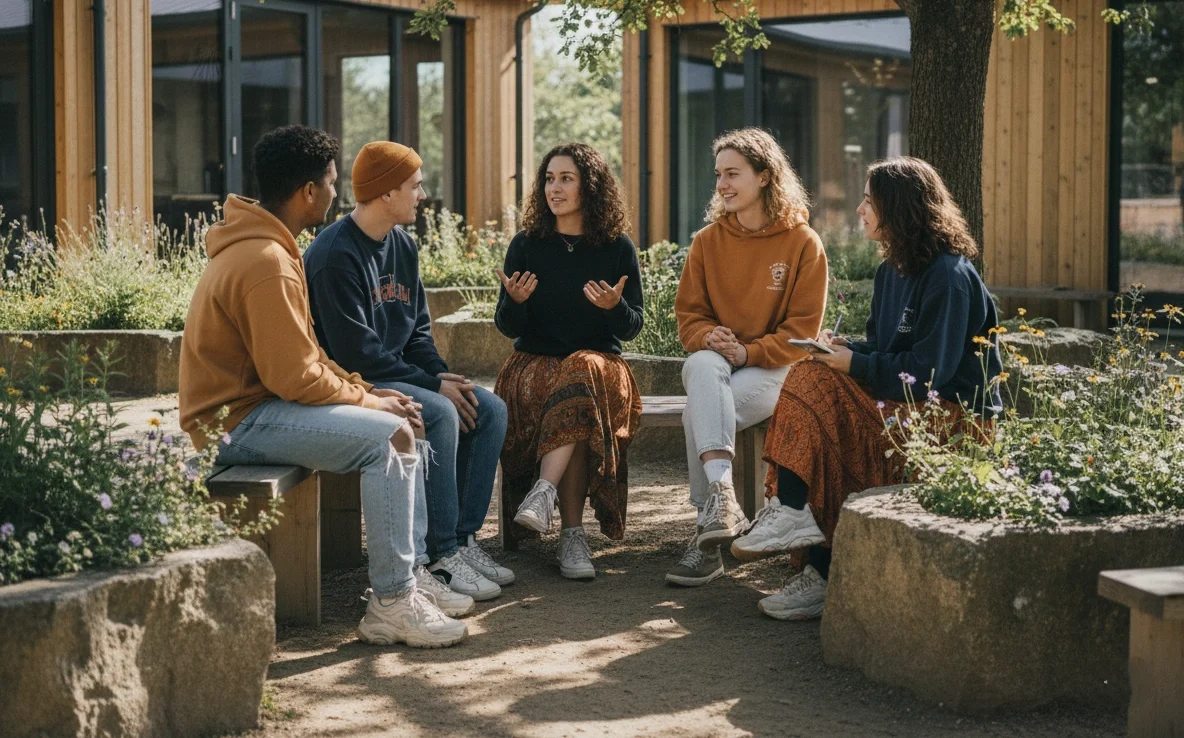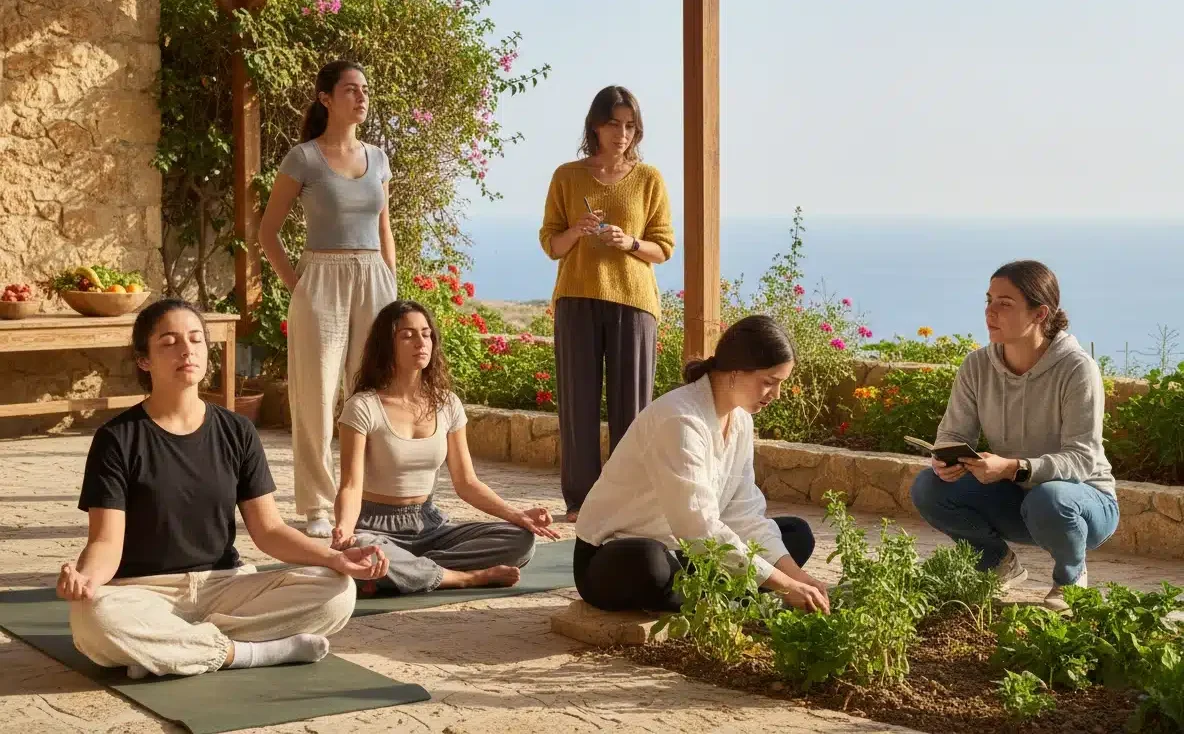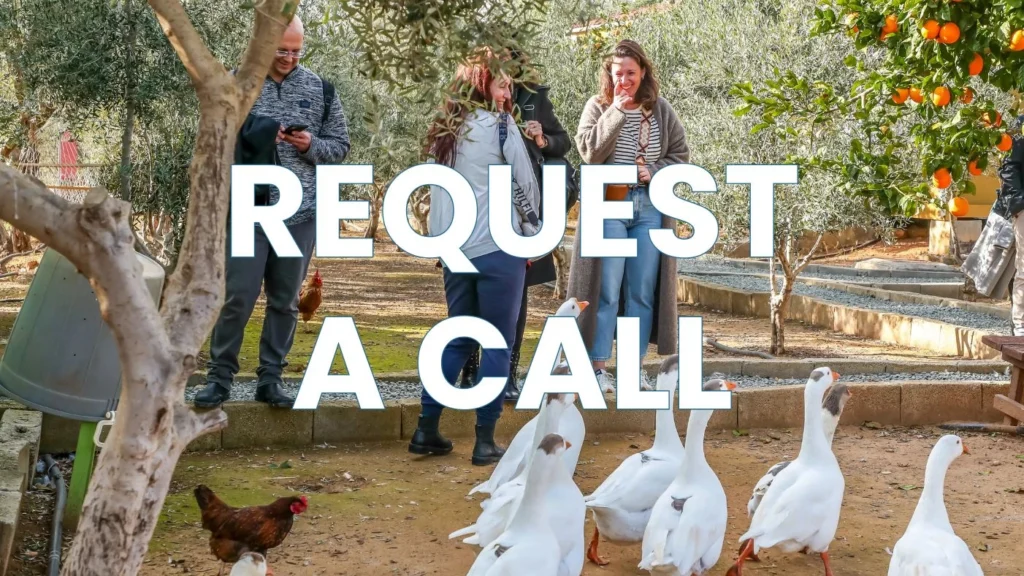Mindfulness and Meditation Practices in Addiction Recovery
05 min read

Introduction: The Need for Stillness in a Noisy World
Young adults today face constant stimulation—social media notifications, academic pressures, social expectations, and personal challenges. For those in recovery from addiction, this noise can make it difficult to find the mental clarity and emotional stability needed for long-term healing.
Mindfulness and meditation offer a different pace—one that promotes calm, focus, and self-awareness. At Holina Village in Cyprus, these practices are not an optional add-on but a core part of the recovery process, helping residents develop skills they can carry with them long after they leave treatment.
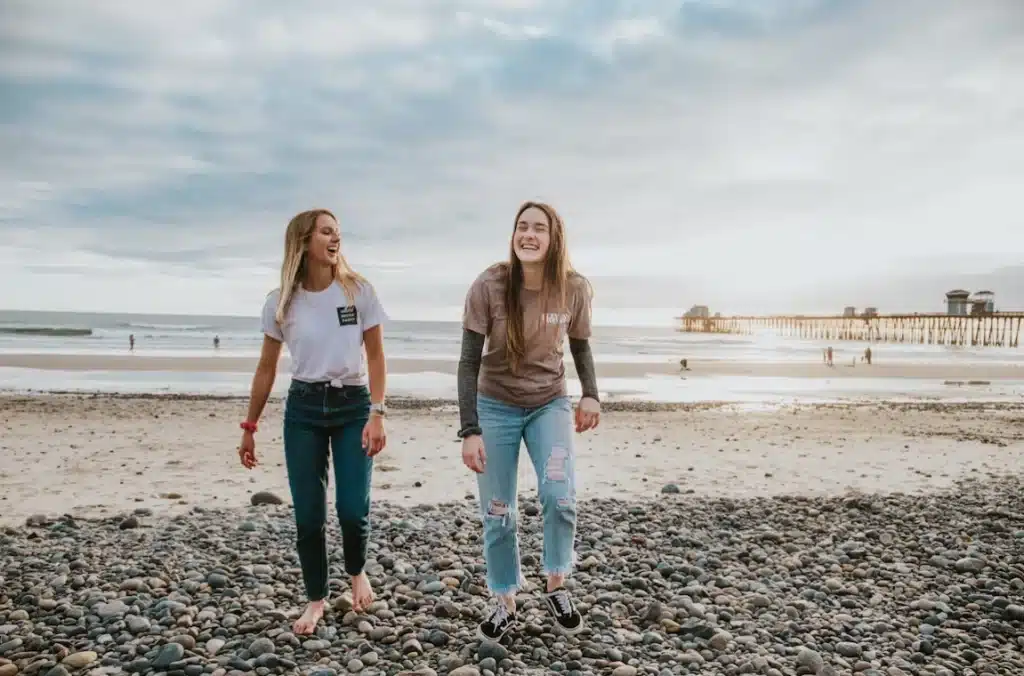
What Is Mindfulness and Why Does It Matter in Recovery?
Mindfulness is the practice of being fully present and engaged in the current moment without judgment. In recovery, mindfulness:
Interrupts automatic negative thinking patterns that can lead to relapse
Builds emotional regulation skills for handling cravings and stress
Enhances self-awareness so residents can better understand triggers and responses
For young adults, mindfulness is especially powerful because it strengthens focus, patience, and decision-making—key traits for navigating the challenges of early adulthood.
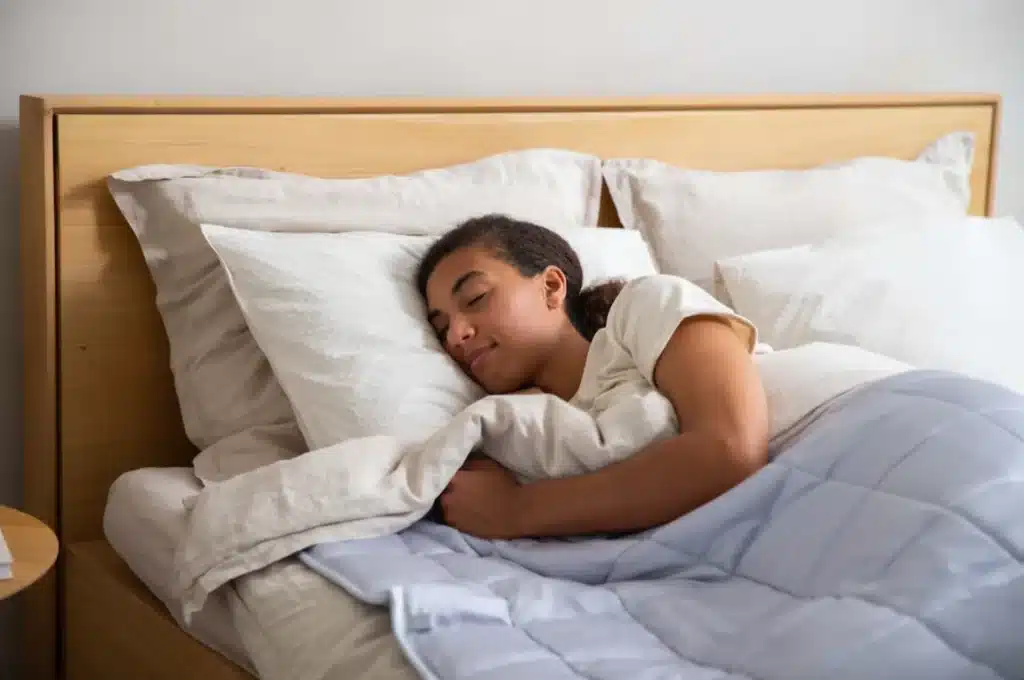
The Role of Meditation in Addiction Recovery
Meditation is a formal practice within mindfulness, typically involving focused breathing, guided visualization, or silent observation of thoughts and sensations. Benefits include:
Stress reduction by lowering cortisol levels
Improved mood stability through balanced brain chemistry
Better sleep quality, which is crucial for emotional resilience
Enhanced focus and clarity, aiding therapy engagement and personal growth
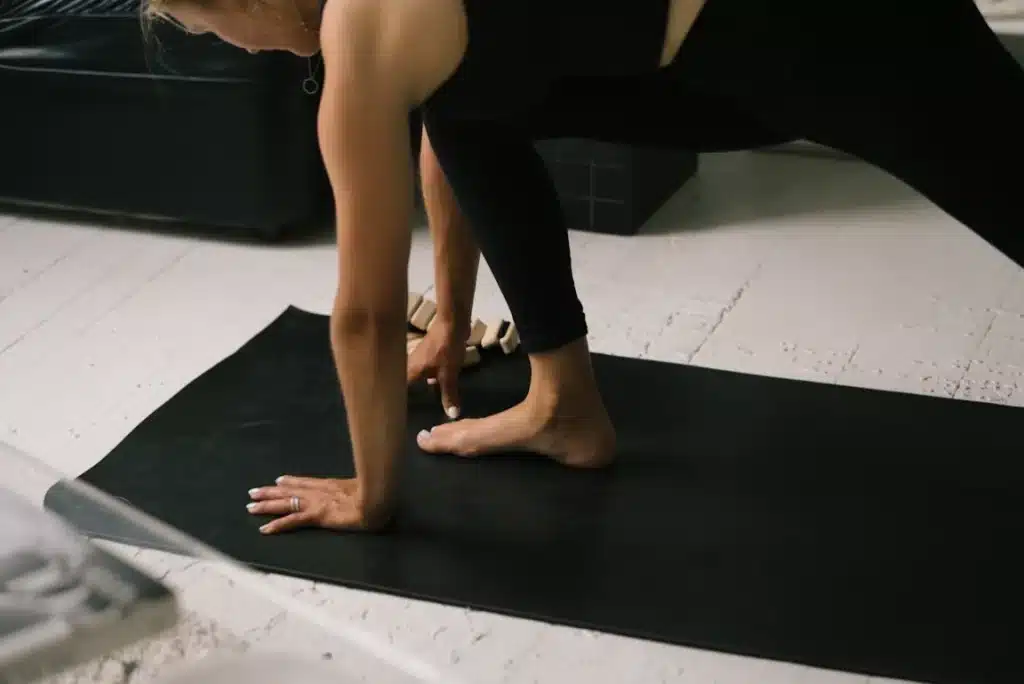
Mindfulness and Meditation Practices at Holina Village
Guided Meditation Sessions
Residents participate in daily guided meditations led by trained facilitators, often held outdoors in the serene Cypriot landscape.
Breathwork Exercises
Specialized breathing techniques are used to calm the nervous system, reduce anxiety, and improve focus before therapy sessions.
Mindful Movement
Yoga, tai chi, and slow stretching routines are incorporated into the program to combine physical relaxation with mental presence.
Nature-Based Mindfulness
Residents may practice mindfulness while walking through orchards, tending to animals, or observing natural surroundings, integrating meditation into everyday activities.
How Mindfulness Supports Relapse Prevention
By teaching residents to pause before reacting, mindfulness:
Helps manage cravings in high-risk situations
Reduces impulsive decision-making
Encourages healthy coping strategies instead of turning to substances
Research also shows that mindfulness can reduce the risk of relapse by improving emotional regulation and building tolerance for uncomfortable feelings without the need to escape them.
Integrating Mindfulness with Other Therapies
At Holina Village, mindfulness is woven into evidence-based approaches like CBT and DBT. For example:
In CBT, mindfulness helps residents recognize thought patterns before challenging them
In DBT, mindfulness supports emotional regulation and distress tolerance skills
In ACT, mindfulness aids in accepting thoughts and feelings without being controlled by them
Long-Term Benefits Beyond Rehab
Mindfulness is a skill for life—not just for recovery. Residents often find that after leaving Holina Village, they use mindfulness techniques to:
Manage workplace or academic stress
Maintain healthier relationships
Enhance personal well-being and self-compassion
Conclusion: A Clearer Mind for a Brighter Future
Mindfulness and meditation are more than relaxation techniques—they are life tools. At Holina Village in Cyprus, these practices help young adults slow down, find clarity, and make choices that align with their recovery goals. In a fast-paced world, stillness can be the most powerful step toward lasting change.
📞 Contact Holina Village: +66 (0) 626 418 369
🌐 Learn more: holinacyprus.com
Frequently Asked Questions (FAQs)
1. Do I need prior experience to start mindfulness or meditation?
No. All sessions at Holina Village are beginner-friendly and guided by trained facilitators.
2. How often do residents practice mindfulness?
Mindfulness is practiced daily, often multiple times, both formally and informally.
3. Can mindfulness help with cravings?
Yes. Mindfulness teaches residents to observe cravings without acting on them, reducing their power over behavior.
4. Is meditation religious or spiritual?
Not necessarily. At Holina Village, mindfulness and meditation are taught as practical skills for mental health, though spiritual exploration is welcomed for those who wish.
5. How long before I see results from mindfulness practice?
Some benefits, like reduced stress, can appear within days. Deeper emotional and behavioral changes may develop over weeks or months of consistent practice.
6. Does mindfulness replace therapy or medication?
No. It works best alongside evidence-based therapies and, when needed, medication prescribed by mental health professionals.



